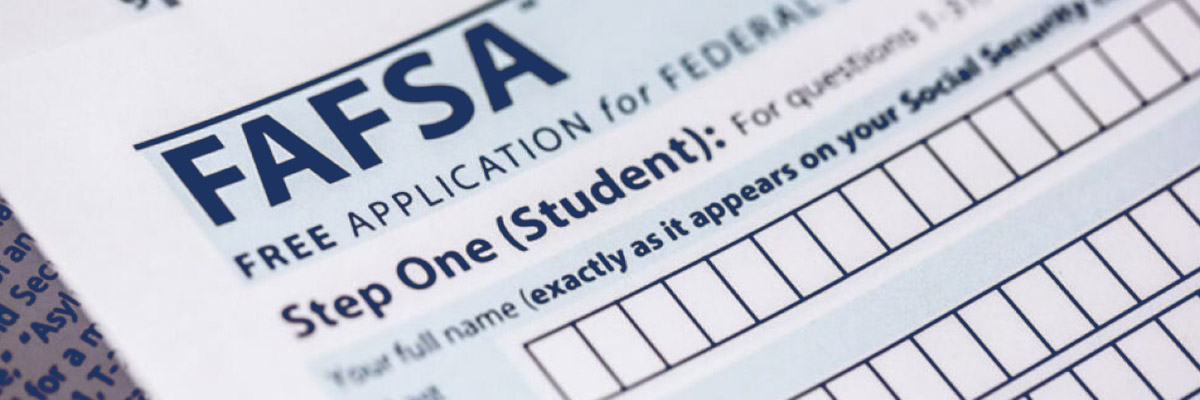Apply for Grad School
Studying & Testing
Many graduate programs require an entrance exam. You can read about the different types of exams here. Here are some tips to help you to study and practice for admissions exams:
TUTORING SESSIONS
Take advantage of any tutoring sessions available in your area for your admissions entrance exams. These sessions provide one-on-one learning experiences where potential students can learn topics in a personal matter, rather than the traditional method.
PRACTICE TESTS
Practice tests are designed to give potential students a real life test-taking experience. Be sure to go through as many practice tests as you can to get a feel of the duration and level of intensity of a graduate entrance test.
SUPPLEMENTAL STUDY RESOURCES
Be sure to utilize supplemental resources such as people who have already taken the test(s), study groups with those who plan on taking the same test(s), and the testing board’s web page. These resources will take you outside the traditional study materials to gain more insight into what things to look for, what to expect, and what you might not have seen.
TAKE THE TEST EARLY
Make sure you take your test(s) as early as possible; this will allow time for retakes if needed, and provides a solid peace of mind as the remainder of the application process progresses.
DON’T RUSH, BUT PACE YOURSELF
While in the test, take your time and go through each question thoroughly. Do not worry about how much of the test remains, but instead use the pacing strategies you developed during practice sessions to gauge when it is time to move to the next question.
Recommendation Letters
Letters of recommendation are an essential part of the graduate school application process. These letters should provide an overview of the skills and attributes that you possess to be a successful candidate. What makes these letters significant is that they are written by professionals with first-hand experience teaching, working with, or observing the applicant.
Here are some tips to get strong letters of recommendation:
START EARLY
Be sure to begin the process well in advance because finding the right people to recommend and complete the letter(s) on time can be challenging. People have professional and personal schedules that may not coincide with your time frame for obtaining the letter(s). By starting your search early, you can ensure that you allow enough time for potential recommenders to complete the letter(s) by the time you need them.When considering references, seek people who:
- Know you personally for a significant amount of time
- Know your work or education experiences
- Think highly of you
- Understand your education and career objectives
- Are fairly and favorably known
- Write well
Keep in mind that your current or previous school’s Career Services Department may also be able to assist in the creation of a Recommendation Letter. This is a great resource that is free of charge.
REQUEST AN APPOINTMENT OR CALL
Do not blindside potential recommenders with requests. Showing up unannounced with a list full of things you need is a sure fire way of getting shut down. Instead, schedule an appointment with the person who you think will provide a great recommendation during a time that will work best for them. Remember, this person is providing you a much-needed resource in their own free time, so do your best to accommodate their needs.
PROVIDE A RESUME/CLEAR DETAILS/TRANSCRIPTS/DUE DATES
Once you have an appointment set and are ready to attend, be sure to have all necessary information available for the potential recommender to review. You will need documentation, such as a resume and transcripts that show your scholastic, work, and extracurricular achievements. Research experience, awards, admissions tests, and professional goals are also crucial. Essentially, the more information you deliver to the writer, the stronger the letter will be.
In addition, you will need to be clear (yet considerate) and inform her/him of the timeframe in which the letter is due. The deadline will need to be ahead of the actual time needed to plan for any unforeseen events that may occur.
BE RESPECTFUL
Above all, be respectful in all of your requests. Kindness and gratitude will go a long way in gaining the strong recommendations you will need for graduate school and beyond.
Essay & Personal Statement
In your essay/personal statement, you will define your purpose in attending graduate school. The essay should denote which specific program and areas you choose to attend, while defining what your intentions are in the future after graduation. You should share what makes you unique and ready for study in the chosen field.
Here are some tips:
CATER EACH STATEMENT TO SCHOOL/PROGRAM
Write a personal statement that refers to the specific school/program you are applying to. A “one size fits all” approach will not suffice. Let the reviewer know you are serious about wanting to be at that school for that program instead of someone who is hoping to get in anywhere.
BE SINCERE AND PERSONAL
Your personal statement should be just that - personal. It needs to reflect who you are as a person and why you are made for the program and subsequent career. It needs to show how you as a person differentiate from all others based on your experiences, accomplishments, and desires.
BE SPECIFIC AND CONCISE
Although narratives and experiences are essential to a personal statement, be sure to keep the content specific and concise.Going off on a tangent about many different topics can dissuade the reviewer. Instead, keep the content relevant to the reasons on why you are the ideal candidate to be accepted into the program.
PROOFREAD WITH OTHERS
Allowing others to proofread your statement will allow you to view your writing from a different perspective. Grammar, punctuation, and style differ from reader to reader. Just be sure to utilize proofreaders that you know will be able to find any mistakes and know you personally.
Resume
Most grad school applications require a resume. This resume, however, differs from what you might submit for employment. Most elements are the same - work experience, education, skills - but applicants will need to emphasize these elements differently.
A grad school resume should include:
- Header
- Education
- Work Experience
- Publications
- Skills and Certifications
- Extracurricular Activities
It is important when creating these sections to pay attention to the program requirements. All areas listed in the resume must reflect back to meeting or exceeding program requirements.
FOCUS ON EDUCATION
The resume will need to bring education to the forefront. Because you are applying to an educational institution, your resume needs to feature your educational accomplishments so reviewers can see what foundations you have to qualify for the program.
INCLUDE INTERNSHIPS AND VOLUNTEER EXPERIENCE
Because many undergrad students have limited work experience, listing internships and volunteer experiences is very beneficial. This information informs reviewers of additional skills and experiences you may have developed by being involved in volunteering or interning.
HIGHLIGHT ACCOMPLISHMENTS
In addition to academics, be sure to highlight any personal accomplishments that relate to the theme of the resume and showcase your ability to stand out from others.
PROOFREAD
Review the resume with others to ensure that the grammar and punctuation are proper. Simple mistakes with spelling or poor choice of words can be quite a detriment to the overall resume.
LENGTH AND FORMAT
Do not worry too much about the length as you would with an employment resume. Instead of the one page guideline, feel free to incorporate two to three pages, so you can include the additional information not typically seen on a work resume.
Timeline
Once you have all the necessary documents together - transcripts, test scores, recommendation letter(s), essays/ personal statement, resume - it is time to submit your application.
It is very important to apply as far in advance as possible. You might receive acceptance letters along with rejection letters, so getting responses early on can help steer you towards the program and school you will be attending.
You will want to complete all documentation and submit the application at least two to four months prior to the deadline. For a fall semester, this will typically be in the summer of the previous calendar year.
Interview
Nail your interview by being prepared. Here are some tips:
RESEARCH THE SCHOOL/PROGRAM/PROFESSION
Research and understand the profession you wish to go into. Get familiar with key terms and concepts and how you are a good fit for them. Research the particular school and the program that will take you into the profession. Be able to explain why the chosen school’s program will provide the best opportunity to reach your professional goals.
UNDERSTAND POTENTIAL QUESTIONS
Although questions will vary between schools, some distinct questions will remain consistent. Here are a few to plan for:
- What is your greatest strength?
- What are your weaknesses?
- If others could pick one word to describe you, what would it be? What are your outside interests?
- What brought you to this school/program?
Be prepared to answer these questions and practice your answers ahead of time. Get comfortable with being open and ready to showcase yourself.
ASK QUESTIONS
The majority of the interview will be to discover who you are, but it is also very important for you to discover more about the program and if it is right for you. By asking questions, you show the interviewer(s) that you are strongly interested in this career field and want to know if this will ultimately be the right school for you. The type of questions you ask will help differentiate you from the other applicants and give you insight into the school itself.
Some potential questions to ask are:
- How is this program set apart form others?
- What is the strongest aspect of this program/school?
- What does it take to be successful in this program?
- What kind of access do students have to work with professors on research projects?
PHYSICAL APPEARANCE
As with all interviews, you should do you best to look as professional as possible. This extends past just clothing. Be sure to be well groomed (hair, nails, deodorant) and get plenty of rest the week and night before. A refreshed and well-kept appearance will project well and give you added confidence throughout the interview.
PRACTICE BEFOREHAND
Practice makes perfect in most areas of our lives, and interviewing is no exception. Team up with a career counselor, coworker, or professor to practice your responses. Practicing with individuals who have conducted interviews or have had plenty experience going through them is ideal.
SEND A THANK YOU NOTE
It is a nice gesture to send a thank you note after your interview. This will convey your appreciation and professionalism in a personal manner. This simple gesture can go a long way in the decision between two equally matched candidates.

Grad School 101

Choose a Program
